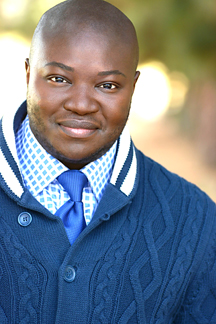By Rizi Xavier Timane
Every year on Nov. 20, transgender individuals and their allies around the world commemorate the Transgender Day of Remembrance.
But make no mistake: This is not a holiday, and the ceremonies we hold are certainly not celebrations.
Rather, the Day of Remembrance is a solemn time when we can come together and reflect on the battles we have fought and continue to fight and those individuals we have lost — the transgender and other gender-nonconforming individuals who were innocent victims of violence because of who they were, because they had the audacity to live as their authentic selves.
I would like to say I’ve never experienced this extreme sort of prejudice before, but like most trans people, I have my stories. While I thank God there have never been any attempts on my life, there have been people around me who thought I would be better off — or they would be better off — if I were dead. While I was a university student in London, another young person studying there passed away, and some of my fellow African students (I am from Nigeria) made a point of saying, loudly and closely enough that they knew I would hear, that it should have been me instead.
Besides the defeating personal implications of hearing such a thing, this incident continues to be a sad reminder to me of how deeply many people undervalue transgender lives and how, at any moment, someone out there could hate us enough to kill us. It reminds me that it could easily be our pictures shown at memorial services on the Transgender Day of Remembrance.
But this is part of what the day is for: to remind us that we all share this heavy burden, that we are not alone in our persecution and suffering.
Is this comforting? In some ways, yes. It’s always a comfort to know someone else feels as we do.
But it’s also problematic. That we even have to have such a day is, in my opinion, shameful not for those of us who participate or those we remember but for society as a whole — for the culture of conformity and hatred that keeps us hidden within ourselves, afraid to come out for fear of rejection and outright violence.
I don’t want a day of remembrance. I want a Pride day, like the LGB community has. Or no day at all because the murders of transgender individuals have ended in every nation around the world.
How can we make this happen? How can we eradicate the need for a Transgender Day of Remembrance?
In general we need more allies, more compassion, more understanding and more tolerance. We need more safe spaces in which we can raise our voices and share our stories. We need mandatory diversity training in schools and universities, police departments, hospitals and businesses so everyone will be aware of and understand transgender individuals and issues. We need nationwide laws to ban discrimination based on gender identity and presentation.
We need all this for our safety. Most of all, we simply need the deaths to stop.
Rizi Xavier Timane is a transgender minister, author, recording artist and outspoken advocate for the LGBT community. He has performed his positive, LGB-inclusive inspirational music at venues all across the U.S. and internationally. In his memoir, An Unspoken Compromise, Timane shares his journey to self-acceptance as a trans man of faith; he also writes for the Southern Poverty Law Center’s Teaching Tolerance blog, is a sought-after public speaker on the intersection of religion and LGBT civil rights, and holds a master’s in social work and a Ph.D. in Christian counseling. As the founder of Rizi Timane Ministries and The Happy Transgender Center, he provides affirming spiritual support to people of all faiths, sexual orientations and gender identities. Having been subjected to what he terms, “involuntary religious-based abuse” in the form of multiple exorcisms to pray the gay or trans away and the subsequent self-loathing and drug/alcohol abuse that resulted from that Timane is a firm believer in spiritual affirmation for the trans community. His greatest accomplishment has been the establishment of an annual transgender surgery and hormones scholarship for trans-persons who, for whatever reason, cannot afford the surgery or hormone therapy they want and need.

















